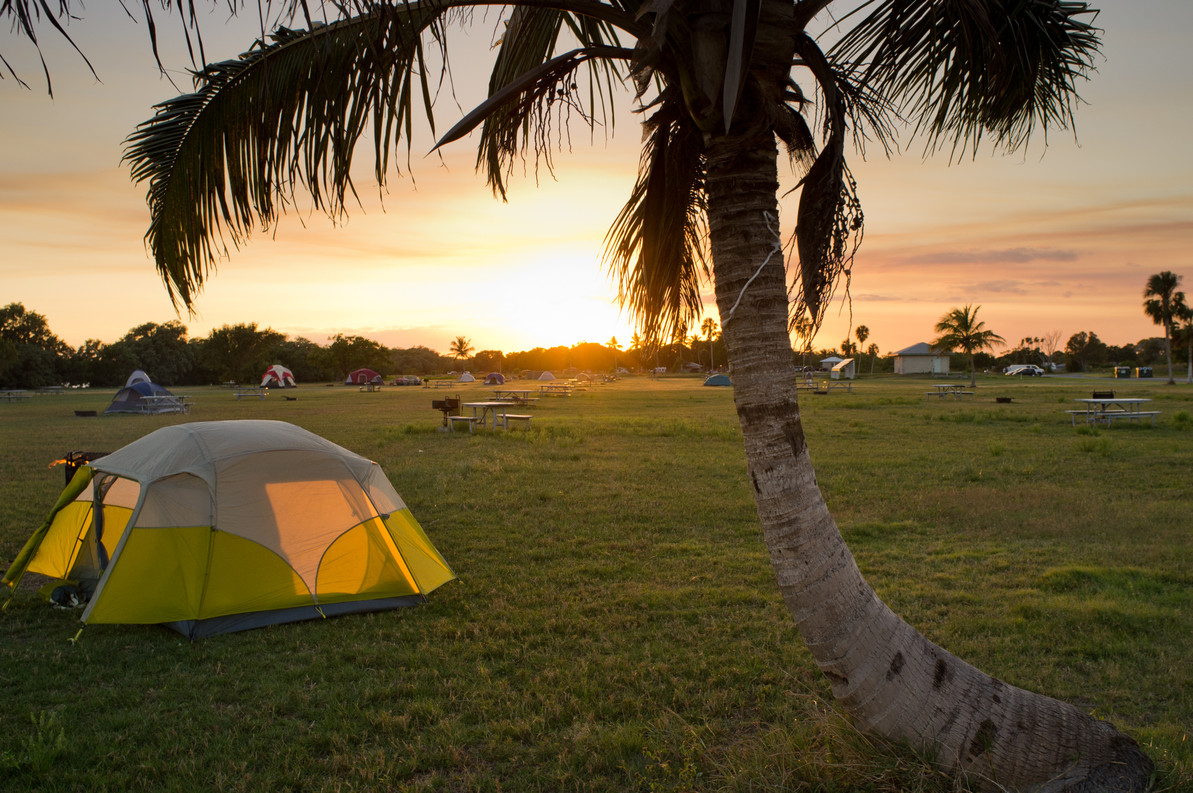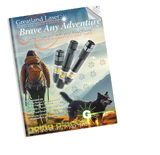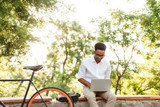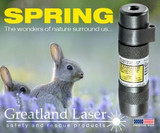Summer Camping in Florida
With school out for summer, it's a popular time to go camping in Florida. If you're considering a camping trip in Florida, here's what you need to know to do it safely.
Choose the Right Tent
Summer is Florida's hottest season. Experts recommend bringing a tent that accommodates twice as many people as it will sleep, so a tent for four when two people are camping. Your body will appreciate the extra room to breathe.
Since many campsites are on packed shell or other hard surfaces, it's easiest to camp with self-supporting tents rather than those that rely on stakes. You'll experience difficulty driving stakes into the ground in many campsites.
Set up your tent where it will get a breeze. Unzip tent flaps so that air passes through the mesh. This will keep the tent cool.
Take Extra Water
Given the heat and humidity, extra water can help you stay hydrated during the Florida summers. You'll either need to treat water you find at the campsite using a water purification system, or you'll need to take what you anticipate needing for drinking, cooking, and cleaning up.
Bright the Right Gear
When camping in Florida, you'll need bug spray and sunblock. A tarp is a good idea, as you can use it to make a rain shelter when a storm pops up -- common in the summer rainy season. A whistle can help you keep bears away, and mace or pepper spray provides protection if you encounter a bear.
If you are hiking in a remote area, take along safety supplies. A weather radio helps you track the weather so you'll know if there's an emergency. Bring along a cell phone, so you can contact help if anything goes wrong.
Don't forget about the first-aid kit. You'll want bandages, antiseptic ointment, gauze, adhesive tape, and over-the-counter medication. You may want to bring calamine lotion for poison ivy or hydrocortisone cream for insect bites.
Finally, a rescue laser is a smart idea in case of emergencies. Rescue lasers shine bright light, which can be seen through the woods if your group becomes separated. These lasers can be used to signal aircraft or rescue boats.
Be Alligator and Snake Aware
If you are camping near water, you might see an alligator. Alligators are just as afraid of humans as you are of them. If you spot a gator, back away slowly. Never let young children play unsupervised near water, even if you don't see any gators at present.
Poisonous snakes to worry about include the rattlesnake and water moccasin. Risk of snake bite increases with contact, for instance when you try to kill a snake with a shovel or your child picks up a snake out of curiosity. Learn to recognize poisonous snakes, then leave them alone to reduce risk.
Practice settling up your tent and using your rescue laser before you camp. This way, you'll know what to do when you're out in the wilderness.
Blog Posts
-
Brave Any Adventure Newsletter 2024 Q2
Click to read our second quarter 2024 Brave Any Adventurenewsletter! …16th Apr 2024 -
Natural Wisdom: How Outdoor Experiences Can Fuel Entrepreneurial Success
Many entrepreneurs find themselves caught in the hustle and bustle of their daily lives, neglecting …12th Apr 2024 -
Spring is in the Air!
1st Apr 2024




